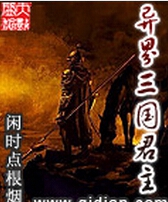君主论-the prince(英文版)-第4章
按键盘上方向键 ← 或 → 可快速上下翻页,按键盘上的 Enter 键可回到本书目录页,按键盘上方向键 ↑ 可回到本页顶部!
————未阅读完?加入书签已便下次继续阅读!
freedom will hold itmore easily by the means of its own citizens than in any other way。There are; for example; the Spartans and the Romans。 The Spartans heldAthens and Thebes; establishing there an oligarchy; nevertheless theylost them。 The Romans; in order to hold Capua; Carthage; and Numantia;dismantled them; and did not lose them。 They wished to hold Greece asthe Spartans held it; making it free and permitting its laws; and didnot succeed。 So to hold it they were pelled to dismantle many citiesin the country; for in truth there is no safe way to retain themotherwise than by ruining them。 And he who bees master of a cityaccustomed to freedom and does not destroy it; may expect to bedestroyed by it; for in rebellion it has always the watch…word ofliberty and its ancient privileges as a rallying point; which neithertime nor benefits will ever cause it to forget。 And what ever you may door provide against; they never forget that name or their privilegesunless they are disunited or dispersed but at every chance theyimmediately rally to them; as Pisa after the hundred years she had beenheld in bondage by the Florentines。But when cities or countries are accustomed to live under a prince; andhis family is exterminated; they; being on the one hand accustomed toobey and on the other hand not having the old prince; cannot agree inmaking one from amongst themselves; and they do not know how to governthemselves。 For this reason they are very slow to take up arms; and aprince can gain them to himself and secure them much more easily。 But inrepublics there is more vitality; greater hatred; and more desire forvengeance; which will never permit them to allow the memory of theirformer liberty to rest; so that the safest way is to destroy them or toreside there。CHAPTER VICONCERNING NEW PRINCIPALITIES WHICH ARE ACQUIRED BY ONE'S OWN ARMS ANDABILITYLET no one be surprised if; in speaking of entirely new principalitiesas I shall do; I adduce the highest examples both of prince and ofstate; because men; walking almost always in paths beaten by others; andfollowing by imitation their deeds; are yet unable to keep entirely tothe ways of others or attain to the power of those they imitate。 A wiseman ought always to follow the paths beaten by great men; and to imitatethose who have been supreme; so that if his ability does not equaltheirs; at least it will savour of it。 Let him act like the cleverarchers who; designing to hit the mark which yet appears too fardistant; and knowing the limits to which the strength of their bowattains; take aim much higher than the mark; not to reach by theirstrength or arrow to so great a height; but to be able with the aid ofso high an aim to hit the mark they wish to reach。I say; therefore; that in entirely new principalities; where there is anew prince; more or less difficulty is found in keeping them;accordingly as there is more or less ability in him who has acquired thestate。 Now; as the fact of being a prince from a private stationpresupposes either ability or fortune; it is clear that one or other ofthese two things will mitigate in some degree many difficulties。Nevertheless; he who has relied least on fortune is established thestrongest。 Further; it facilitates matters when the prince; having noother state; is pelled to reside there in person。But to e to those who; by their own ability and not through fortune;have risen to be princes; I say that Moses; Cyrus; Romulus; Theseus; andsuch like are the most excellent examples。 And although one may notdiscuss Moses; he having been a mere executor of the will of God; yet heought to be admired; if only for that favour which made him worthy tospeak with God。 But in considering Cyrus and others who have acquired orfounded kingdoms; all will be found admirable; and if their particulardeeds and conduct shall be considered; they will not be found inferiorto those of Moses; although he had so great a preceptor。 And inexamining their actions and lives one cannot see that they owed anythingto fortune beyond opportunity; which brought them the material to mouldinto the form which seemed best to them。 Without that opportunity theirpowers of mind would have been extinguished; and without those powersthe opportunity would have e in vain。It was necessary; therefore; to Moses that he should find the people ofIsrael in Egypt enslaved and oppressed by the Egyptians; in order thatthey should be disposed to follow him so as to be delivered out ofbondage。 It was necessary that Romulus should not remain in Alba; andthat he should be abandoned at his birth; in order that he should beeKing of Rome and founder of the fatherland。 It was necessary that Cyrusshould find the Persians discontented with the government of the Medes;and the Medes soft and effeminate through their long peace。 Theseuscould not have shown his ability had he not found the Atheniansdispersed。 These opportunities; therefore; made those men fortunate; andtheir high ability enabled them to recognize the opportunity wherebytheir country was ennobled and made famous。Those who by valorous ways bee princes; like these men; acquire aprincipality with difficulty; but they it with ease。 The difficultiesthey have in acquiring it arise in part from the new rules and methodswhich they are forced to introduce to establish their government and itssecurity。 And it ought to be remembered that there is nothing moredifficult to take in hand; more perilous to conduct; or more uncertainin its success; than to take the lead in the introduction of a new orderof things。 Because the innovator has for enemies all those who have donewell under the old conditions; and lukewarm defenders in those who maydo well under the new。 This coolness arises partly from fear of theopponents; who have the laws on their side; and partly from theincredulity of men; who do not readily believe in new things until theyhave had a long experience of them。 Thus it happens that whenever thosewho are hostile have the opportunity to attack they do it likepartisans; whilst the others defend lukewarmly; in such wise that theprince is endangered along with them。It is necessary; therefore; if we desire to discuss this matterthoroughly; to inquire whether these innovators can rely on themselvesor have to depend on others: that is to say; whether; to consummatetheir enterprise; have they to use prayers or can they use force? In thefirst instance they always succeed badly; and never pass anything;but when they can rely on themselves and use force; then they are rarelyendangered。 Hence it is that all armed prophets have conquered; and theunarmed ones have been destroyed。 Besides the reasons mentioned; thenature of the people is variable; and whilst it is easy to persuadethem; it is difficult to fix them in that persuasion。 And thus it isnecessary to take such measures that; when they believe no longer; itmay be possible to make them believe by force。If Moses; Cyrus; Theseus; and Romulus had been unarmed they could nothave enforced their constitutions for long …… as happened in our time toFra Girolamo Savonarola; who was ruined with his new order of thingsimmediately the multitude believed in him no longer; and he had no meansof keeping steadfast those who believed or of making the unbelievers tobelieve。 Therefore such as these have great difficulties in consummatingtheir enterprise; for all their dangers are in the ascent; yet withability they will overe them; but when these are overe; and thosewho envied them their success are exterminated; they will begin to berespected; and they will continue afterwards powerful; secure; honoured;and happy。To these great examples I wish to add a lesser one; still it bears someresemblance to them; and I wish it to suffice me for all of a like kind:it is Hiero the Syracusan。 This man rose from a private station to bePrince of Syracuse; nor did he; either; owe anything to fortune butopportunity; for the Syracusans; being oppressed; chose him for theircaptain; afterwards he was rewarded by being made their prince。 He wasof so great ability; even as a private citizen; that one who writes ofhim says he wanted nothing but a kingdom to be a king。 This manabolished the old soldiery; organized the new; gave up old alliances;made new ones; and as he had his own



![[hp]被遗忘的历史-the deepest true boss封面](http://www.xxdzs2.com/cover/7/7494.gif)
